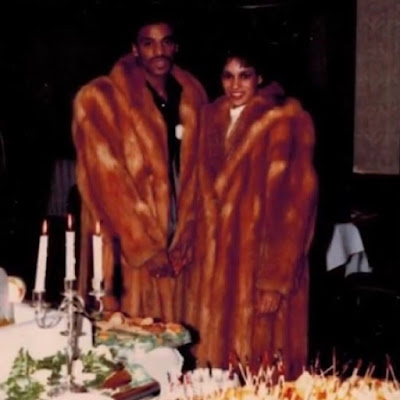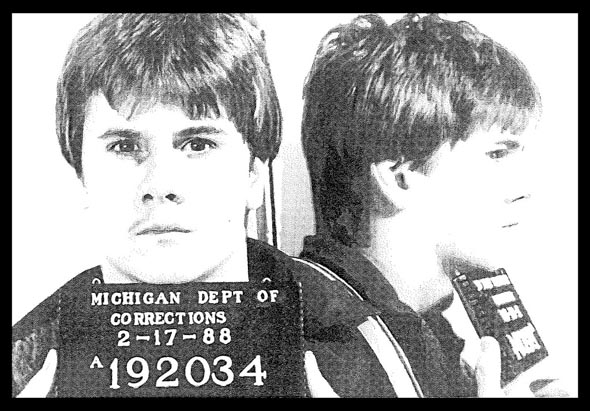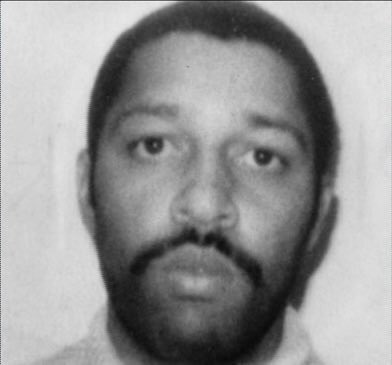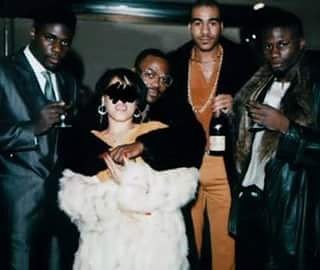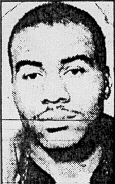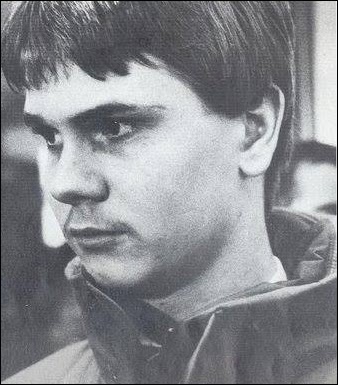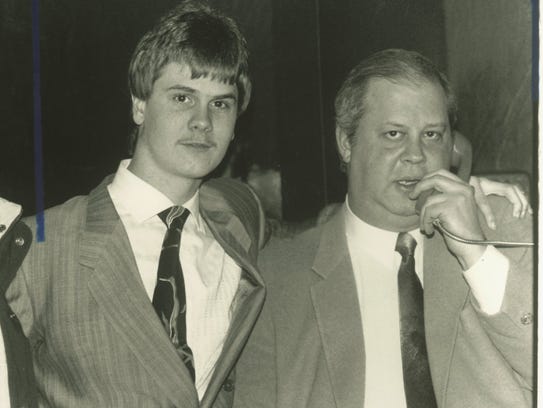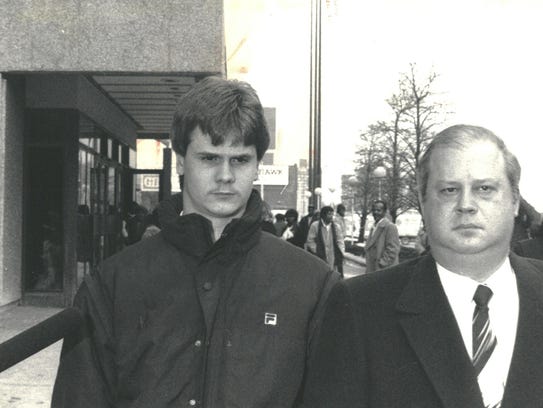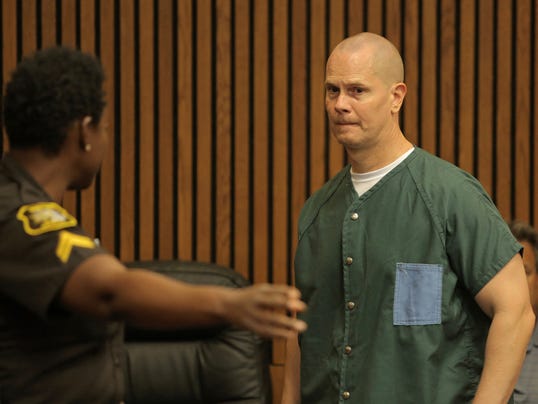by Ran
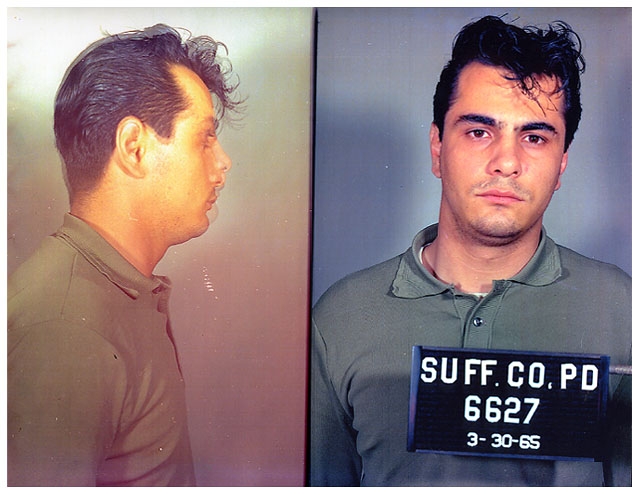
John Joseph Gotti, Jr. was born on October 27, 1940 in the South Bronx, New York. He was the fifth of his parents', John, a sanitation worker and Fannie, 13 children. John often wore ragged clothes to school due to the family's poverty. When he was 12-years-old, the family moved to the East New York section of Brooklyn, NY.
At 14, Gotti lost two toes following the attempted theft of a cement mixer from a construction site with friends, after it rolled over his left foot. The injury had a permanent effect on the way that he walked. Later, Gotti, who idolized Murder Inc. leader Albert Anastasia, headed a neighborhood gang known as the Fulton-Rockaway Boys, which also included his older brother, Peter, and younger brother, Richard. During this time, he forged friendships with fellow teenage trouble-makers Wilfred "Willie Boy" Johnson and Angelo "Quack Quack" Ruggiero, nephew of Gambino crime family member Aniello "Neil" Dellacroce. Gotti attended Queens, NY's Franklin K. Lane High School but dropped out at 16. The Fulton-Rockaway Boys often engaged in turf battles with local African-American gangs and in 1957 one such scuffle resulted in a Rockaway Boy being stabbed and thrown out of a window. Gotti's first arrest, in 1958, for disorderly conduct, was a result of another gang fight. Over the next two years, he became an associate of Gambino family caporegime or capodecina (captain) Carmine "Charlie Wagons" Fatico's mafia crew -- though he did manage to hold legitimate jobs as a trucker's helper and a garment presser during this time as well.
Gotti met Victoria DiGiorgio in a local bar in 1958 and married her in 1962. That same year, the couple's second child, Victoria, was born. Their first, Angela, was born in the spring of 1961. Gotti served 20 days in jail that year for a joyriding charge. In 1963, Gotti was drafted and ordered to report to a Brooklyn Selective Service bureau for induction on November 22 of that year. When he failed to show, the FBI (Federal Bureau of Investigation) began a search for him and were told by each of his parents that they had no idea where he was since falling out with him over the fact that he'd gotten married. In 1964, Gotti's son, John Angelo Gotti, was born. On October 12, 1965, he was arrested and charged with grand theft auto. When he appeared for his November 10 hearing at the Kings County Court House, the FBI confronted him about his earlier disappearance. The explanation Gotti provided was that he believed that his status as a husband, father and convicted criminal disqualified him from serving in the military. The following day, he reported to the appointed Selective Service board and was denied induction into the armed forces. By the time he was 26, the 5'10" Gotti had been arrested nine times for offenses including gun possession, burglary, assault and auto theft.
Gotti met Victoria DiGiorgio in a local bar in 1958 and married her in 1962. That same year, the couple's second child, Victoria, was born. Their first, Angela, was born in the spring of 1961. Gotti served 20 days in jail that year for a joyriding charge. In 1963, Gotti was drafted and ordered to report to a Brooklyn Selective Service bureau for induction on November 22 of that year. When he failed to show, the FBI (Federal Bureau of Investigation) began a search for him and were told by each of his parents that they had no idea where he was since falling out with him over the fact that he'd gotten married. In 1964, Gotti's son, John Angelo Gotti, was born. On October 12, 1965, he was arrested and charged with grand theft auto. When he appeared for his November 10 hearing at the Kings County Court House, the FBI confronted him about his earlier disappearance. The explanation Gotti provided was that he believed that his status as a husband, father and convicted criminal disqualified him from serving in the military. The following day, he reported to the appointed Selective Service board and was denied induction into the armed forces. By the time he was 26, the 5'10" Gotti had been arrested nine times for offenses including gun possession, burglary, assault and auto theft.
In November of 1967, John, his younger brother Eugene, and Ruggiero were arrested and charged with the theft of clothing and electronics from cargo trucks that they hijacked near John F. Kennedy International Airport (then known as Idlewild Airport). All three entered guilty pleas. In December, John was convicted for another truck hijacking at JFK. John was sentenced to seven years and another four years in prison, to run concurrently. [John was sentenced to three years in prison] He did his time in the Lewisburg, Pennsylvania federal facility, where he met, and impressed, Bonanno crime family underboss Carmine Galante, who was serving a 20-year sentence for a narcotics conviction. During her husband's time away, Victoria received public assistance in order to care for the family, which had grown to include four children. Her parents helped out by purchasing a home for the clan in Queens' Howard Beach community. Upon his release in 1972, Gotti was named acting head of the Fatico crew by Fatico himself, who'd decided to lower his profile after being indicted for loan-sharking.
On May 18, 1972, Emanuel "Manny" Gambino, the nephew of Gambino family head, Carlo Gambino, was shot to death after being kidnapped and held for $350,000 ransom, only $23,000 of which was paid. Gotti was ordered to murder one of the perpetrators, Irish-American mobster James McBratney. On May 22, 1973 Gotti, Ruggiero, and Ralph "Ralphie Wigs" Galione confronted McBratney in a Staten Island bar, Snoopes, claiming to be police detectives, where he was later found shot to death. Though McBratney was unarmed during the confrontation, detectives later found a submachine gun in his car, which was parked outside of the bar. Gotti, who'd been picked from a photo array by witnesses, was arrested in June of 1974 and charged with murder. After attorney Roy M. Cohn, retained by Gambino, struck a deal with prosecutors, both Gotti and Ruggiero's murder charges were reduced to attempted manslaughter in exchange for guilty pleas. Each was sentenced to four years in prison. According to Joseph "Big Joey" Massino's witness 2011 testimony, Gotti was also responsible for the 1975 shooting death of Vito Borelli, boyfriend of then-Gambino family caporegime Paul "Big Paul" Castellano's daughter, Constance, on behalf of the capo, because Borelli had reportedly insulted him by comparing his looks to that of Frank Perdue, president, CEO and spokesman for Perdue Farms.
According to investigators, during Gotti's stay at upstate New York's Green Haven Correctional Facility in Stormville, NY, correctional officers, who'd accepted bribes, allowed Gotti to leave prison in order to meet with associates at New York City restaurants and to spend time at his blue and white split level Howard Beach home at 160-11 85th Street. The officers claimed the trips were necessary for medical examinations. Gotti was so popular during his time at Green Haven, that a group of inmates presented him with a plaque before his release, that read, "To a great guy, John Gotti. From the boys at Green Haven."
By the time Gotti was paroled, on July 28, 1977, Paul Castellano had succeeded Carlo Gambino as leader of the Gambino family. Gambino had named Castellano, his brother-in-law, his heir, before his death, by natural causes, in 1976. Gotti, who'd fathered five children (John, Frank, Peter, Victoria and Angel) with his wife Victoria by this time, was made -- officially inducted into the organization -- and received a promotion as well. However, he took a construction job in order to meet the conditions of his parole.
Gotti reportedly took part in the notorious Lufthansa heist at JFK Airport on December 11, 1978. Gotti met with Lucchese crime family associates James "Jimmy the Gent" Burke, the robbery's mastermind, and Henry Hill at the Long Island City, Queens restaurant Prudenti's Vicin' O Mare to discuss the plans prior to the theft. Gotti offered to provide a warehouse in which the goods in the getaway van could be transferred to another vehicle. He was also responsible for having the van destroyed after it was taken to a Brooklyn scrap yard under his control. Though the van was never demolished as planned, through no fault of Gotti, he took home $200,00 of the $5, 875,000 in cash and jewelry stolen.
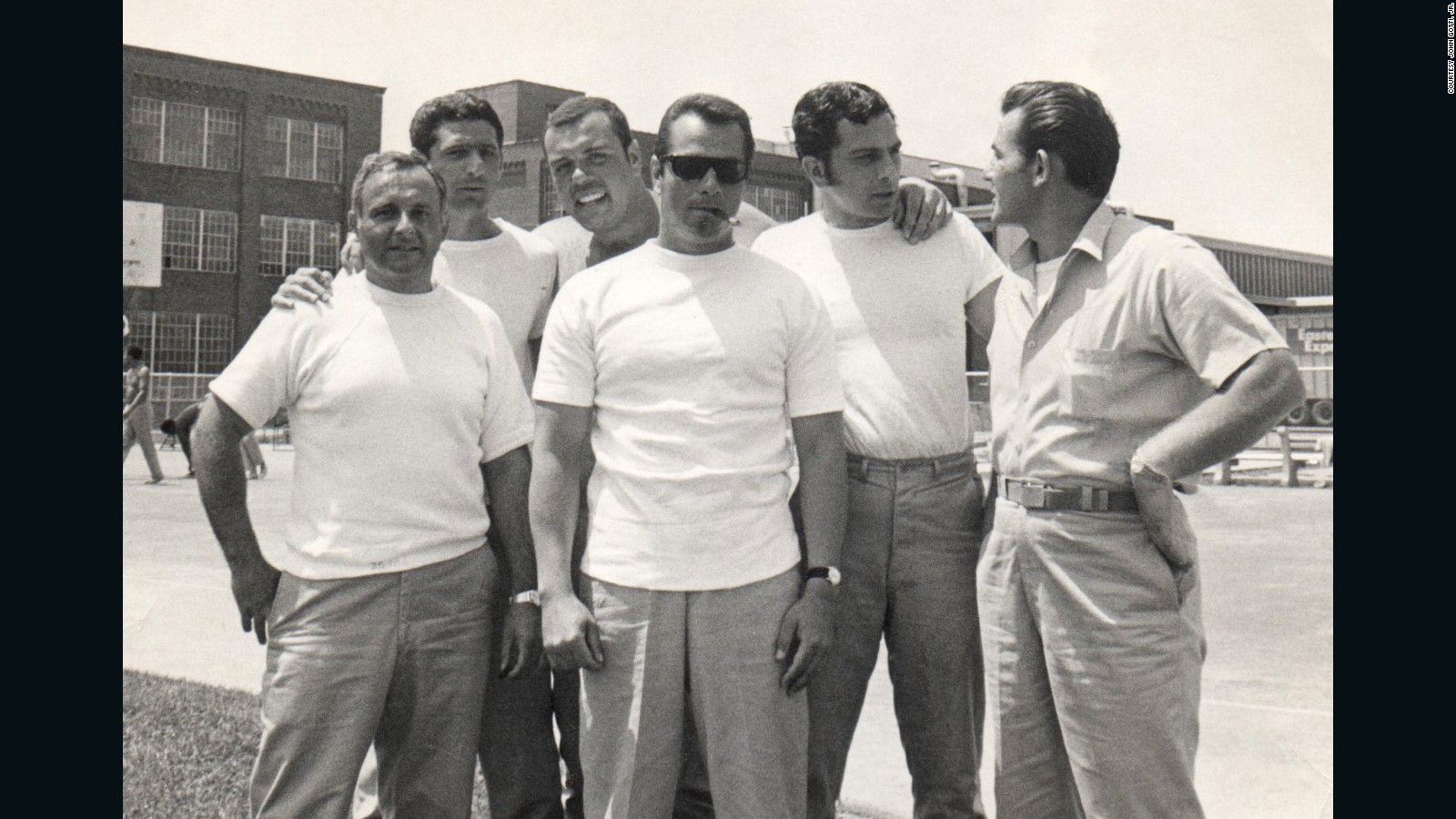

In January of 1979, Gotti allegedly shot 28-year-old Lucchese family-associate Tommy DeSimone to death in the basement of an Italian restaurant, Don Vito's, on the Bronx's Arthur Avenue using a Colt .38 handgun equipped with a silencer. DeSimone, who inspired Joe Pesci's character Tommy DeVito in the 1990 film Goodfellas, was responsible for the 1970 murder of William "Billy Batts" Bentvena as well as the 1974 killing of Ronald "Foxy" Jerothe -- both made members of the Gambino crime family and personal friends of Gotti. After learning that DeSimone was to become a made man, Gotti secured permission to kill him from his boss, Lucchese family member Paul "Paulie" Vario. Gotti welcomed DeSimone as he arrived at what was to be his induction ceremony into the Lucchese family and shot him three times in the head.
Gotti became a "made man", or full member, in 1979, and Dellacroce, now the family's underboss, named him the capo of Fatico's old crew (renamed the Bergin crew).
Gotti's 12-year-old son, Frank, known as "Frankie Boy" to family, was accidentally but fatally struck by a neighbor's car, while riding a mini-bike, on March 18, 1980. When the neighbor, John Favara, went to the Gotti's home to apologize, Victoria attacked him with a baseball bat. Favara's car was stolen from where it was parked in front of his home and was later recovered with the word "murderer" spray-painted on it. On July 28, the same month that he'd put his house on the market, Favara was abducted in New Hyde Park, Long Island, by eight men as he was leaving his job at the Castro Convertible furniture plant. While many speculated for years that Favara was killed, a 44-page motion in a 2009 racketeering case would reveal that Favara was shot in the legs after being ushered into a van. Investigators believe that he was then driven to Brooklyn, where he was shot to death by Gambino enforcer Charles Carneglia and his body dumped into a 55-gallon oil drum of acid with a cement bottom. The drum was then dropped into the ocean. Gotti and Victoria were vacationing in Florida at the time, where they'd driven on July 25.
In 1981, in order to further an investigation by the Queens district attorney's office, listening devices were planted in Gotti's headquarters, the Bergin Hunt and Fish Club, located at the corner of 101st Avenue and 98th Street in Ozone Park, Queens, for three months. Gotti, a chronic gambler, was captured on a November 11 wiretap complaining, "I bet the Buffalo Bills for six dimes, they're getting killed 10-0." Ruggiero's telephone was tapped as well, resulting in FBI investigators' discovery that he was involved in heroin trafficking, specifically, moving 50 kilograms of the drug during a span of six months.
By all accounts, Gotti ran a tight ship. In 1982, he was captured on an audio recording threatening to kill a subordinate, Anthony Moscatiello, for failing to return his phone calls promptly. Gotti told Moscatiello: "Listen, I called your fuckin' house five times yesterday, now, if you're gonna disregard my motherfuckin' phone calls, I'll blow you and that fuckin' house up." He continued, "This is not a fuckin' game. My time is valuable. If I ever hear anybody else calls you and you respond within five days, I'll fuckin' kill you."
In 1983, Ruggiero and Gene Gotti, both members of the Bergin crew, were indicted -- for trafficking heroin -- which was ostensibly prohibited, on penalty of death (though allegedly tolerated, providing the guilty parties were never charged by authorities).
On September 11, 1984, Gotti allegedly slapped refrigerator repairman Romual Piecyk during a parking dispute in Maspeth, Queens and robbed him of cigarettes and $325. Gotti and an associate, Frank Colletta, were double-parked in a car that was blocking Piecyk's vehicle. When he blew his horn, Colletta got out and confronted him, hit him in the face and took cash from his pocket. Gotti then got out and confronted Piecyk as well. Afterwards, Piecyk reported the incident to NYPD Officer Raymond Doyle and Sergeant Thomas Donohue, who followed him to nearby restaurant, Cono the Fisherman , where he pointed Gotti and Colletta out. When the officers called them over, Gotti asked, "Do you know who I am?" and told them, "Let me talk to this guy." After being arrested on the spot, Colletta and Gotti were charged with one count of assault and two counts of robbery.
In March of 1985, John and Gene Gotti; Aniello Dellacroce's son Armond; John "Johnny Carnegs"; Gotti's long-time friend, Gambino soldier Wilfred Johnson; Anthony "Tony Roach" Rampino; Leonard "the Conductor" DiMaria; and Nicholas "Little Nick" Corozzo were charged with violating the RICO Act (Racketeer Influenced and Corrupt Organizations) and three murders, conspiracy to commit robbery, loan sharking and gambling. The indictments were handed down as the result of a three-year investigation into the Gambinos. At a March 28 arraignment, Judge Eugene H. Nickerson ordered the Gottis and Carneglia released on a $1 million personal recognizance bond each. Rampino was released on a $500,000 bond.
By all accounts, Gotti ran a tight ship. In 1982, he was captured on an audio recording threatening to kill a subordinate, Anthony Moscatiello, for failing to return his phone calls promptly. Gotti told Moscatiello: "Listen, I called your fuckin' house five times yesterday, now, if you're gonna disregard my motherfuckin' phone calls, I'll blow you and that fuckin' house up." He continued, "This is not a fuckin' game. My time is valuable. If I ever hear anybody else calls you and you respond within five days, I'll fuckin' kill you."
In 1983, Ruggiero and Gene Gotti, both members of the Bergin crew, were indicted -- for trafficking heroin -- which was ostensibly prohibited, on penalty of death (though allegedly tolerated, providing the guilty parties were never charged by authorities).
On September 11, 1984, Gotti allegedly slapped refrigerator repairman Romual Piecyk during a parking dispute in Maspeth, Queens and robbed him of cigarettes and $325. Gotti and an associate, Frank Colletta, were double-parked in a car that was blocking Piecyk's vehicle. When he blew his horn, Colletta got out and confronted him, hit him in the face and took cash from his pocket. Gotti then got out and confronted Piecyk as well. Afterwards, Piecyk reported the incident to NYPD Officer Raymond Doyle and Sergeant Thomas Donohue, who followed him to nearby restaurant, Cono the Fisherman , where he pointed Gotti and Colletta out. When the officers called them over, Gotti asked, "Do you know who I am?" and told them, "Let me talk to this guy." After being arrested on the spot, Colletta and Gotti were charged with one count of assault and two counts of robbery.
In March of 1985, John and Gene Gotti; Aniello Dellacroce's son Armond; John "Johnny Carnegs"; Gotti's long-time friend, Gambino soldier Wilfred Johnson; Anthony "Tony Roach" Rampino; Leonard "the Conductor" DiMaria; and Nicholas "Little Nick" Corozzo were charged with violating the RICO Act (Racketeer Influenced and Corrupt Organizations) and three murders, conspiracy to commit robbery, loan sharking and gambling. The indictments were handed down as the result of a three-year investigation into the Gambinos. At a March 28 arraignment, Judge Eugene H. Nickerson ordered the Gottis and Carneglia released on a $1 million personal recognizance bond each. Rampino was released on a $500,000 bond.
John was released on $1 million bail, and arrested again in Fort Lauderdale, Florida, in April. On June 15, Gotti reportedly had a physician visit him at Manhattan's Barbizon Plaza Hotel, where he was spending time with mistress Shannon "Sandy" Grillo, estranged wife of Gambino associate Ernesto Grillo and daughter of Dellacroce's mistress, Rosemary Connelly. Gotti had the doctor exam him because what he feared was an ulcer had interfered with the couple's tryst.
Apparently inheriting his father's rumored quick-temper, John Gotti Jr. and friends were involved in a brawl at Howard Beach's Blue Fountain Restaurant Diner on June 30, resulting in his being charged with assaulting off-duty probation officer, Daniel Bedillo.
After learning about Ruggiero and Gene Gotti's drug charges, Castellano sought access to recorded telephone calls that the government insisted contained Ruggiero discussing drug deals. Ruggiero stalled and appealed to Dellacroce, at a June 5 meeting which John Gotti attended, to intervene on his behalf with the boss. Dellacroce, however, succumbed to lung cancer on December 2, 1985 before securing a "pardon" for Ruggiero and Gotti.
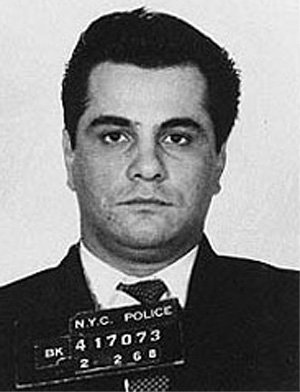

Gotti, fellow Gambino family member Salvatore "Sammy the Bull" Gravano and three others subsequently formed a secret coalition, calling themselves "The Fist", and plotted a coup within the organization. Taking advantage of tensions within the family and resentment toward Castellano's leadership, white-collar pretensions and the fact that he'd failed to attend Dellacroce's funeral, the conspirators secured approval from three of the other four New York crime families (they neglected to reach out to Vincent "The Chin" Gigante, head of the Genovese family) to murder "Big Paul".
On December 16 at approximately 5:25 p.m., Castellano and Gambino underboss Tommy Billotti, who'd been promoted from Castellano's bodyguard and driver, were shot to death shortly after arriving at Manhattan's Sparks Steak House on East 46th Street. Gotti and Gravano watched from a parked car as four men dressed in matching trenchcoats and papakha hats approached Castellano's vehicle and opened fire on both he and Billotti as they exited. Each mobster was shot in the head six times. With Dellacroce and now Billotti and Castellano dead, Gotti became the leader of the Gambino crime family -- the most powerful of the mafia families operating in the U.S. -- making him the capo di tutti capi, Italian for "boss of all bosses". Police detectives surveilling Dellacroce's former headquarters, the Ravenite Social Club, at 247 Mulberry Street in lower Manhattan, in an unmarked van on Christmas Eve, reported observing several suspected mafioso kissing Gotti -- signifying his ascension to the position of mafia don. His elevation in status was also corroborated to the NYPD (New York City Police Department), DEA (Drug Enforcement Agency) and FBI by nine different confidential informants. Gotti let the family's consigliere (Italian for counselor), Joseph N. Gallo, keep his position and astutely prevented potential family infighting by appointing a capo loyal to Castellano, Frank DeCicco, as his underboss.
At the time, the Gambino organization was comprised of 20 capos (crew leaders), 300 made men (official members known as soldiers and wiseguys) and 2,000 associates and grossed an estimated half a billion dollars annually. The money was generated through a variety of revenue streams, including: gambling; loan-sharking; stock fraud; drug trafficking and extortion.
Gotti routinely conducted mob business at the Bergin Club -- starting at noon, after being picked up at home in a limousine, black four-door Mercedes Benz, Cadillac or Lincoln. Hours later he'd be chauffered to his new base of operations, the Ravenite Club, where he was briefed by his lieutenants.
In contrast to the most other mafia dons, of any era, Gotti seemed to relish public attention, frequenting Manhattan eateries, such as the upscale Sistina; the exclusive and celeb-filled Regine's; and P.J. Clarke's -- paying in cash. As Gotti's public profile rose, he became known for the $2,000 double-breasted Brioni suits, monogrammed Gucci socks (38) and $400 hand-painted silk ties that he was fond of wearing. He maintained a cigarette boat in Brooklyn's Sheepshead Bay and regularly visited his $300,000 home in the Poconos on weekends. While investigators estimated Gotti's yearly income at about $11 million, he asserted that he was employed as a plumbing supply salesman, earning a $100,000 annual salary. Sammy Gravano's testimony included the admission that he gave Gotti upwards of $1 million per year as his cut of the profits derived from extorting constuction companies.
Gotti was well-loved in his community, owing partly to the annual block party that he hosted every summer near the Bergin Club in Queens. (4) Crime rates were low in Howard Beach (likely due to Gotti's presence) and on the Gotti family front, his son Peter was announced as the student of the month at P.S. 207 in January of 1986.
On March 24, 1986, during Gotti's and Frank Colletta's trial for assaulting and robbing Romual Piecyk in 1984, the latter, in contrast to his earlier grand jury testimony, testified on the stand in Queens State Supreme Court that he could neither identify the perpetrators nor remember details of the incident. Ironically, the defense attorneys claimed that Piecyk had, in fact, attacked Colletta and that Gotti was merely attempting to help his friend and co-defendant. At one point, Justice Ann B. Dufficy even declared Piecyk a hostile witness. Piecyk, who'd originally been scheduled to testify on the previous Thursday, failed to show and was finally located by police two days later and taken into custody as a material witness for the prosecution. Nearly a month before Piecyk testified, Queens District Attorney John J. Santucci's office asserted that someone had tampered with the brakes on his work van, costing $450 to repair, and that he'd been threatened. Unsurprisingly, given Piecyk's testimony, Justice Dufficy dismissed all charges the following day.
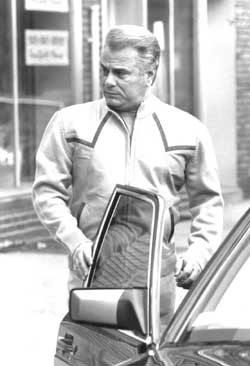

At about 1:45 PM on April 13, Gambino family underboss Frank DeCicco was killed outside of a Bensonhurst social club by a car-bomb. The bomb had been intended for Gotti as well, who'd . According to federal investigators, Genovese crime family boss Vincent "The Chin" Gigante, angered by John Castellano's unsanctioned killing, reportedly ordered the hit in retaliation. Genovese family-associate Herbert "Blue Eyes" Pate, who'd been given the assignment alongside Lucchese crime family underboss Anthony "Gaspipe" Casso, had attached C-4 to the undercarriage of DeCicco's 1985 Buick Electra and detonated it with a remote control appropriated from a toy car as he and Lucchese soldier Frank "Frankie Hearts" Bellino exited the club. According to witnesses, the sedan burst into flames and windows shattered in nearby buildings. Both DeCicco and Bellino, who survived, were transported to Brooklyn's Victory Memorial Hospital by NYPD officer Carmine Romeo, who'd witnessed the bombing, in his police van. Gotti, who was scheduled to meet with DeCicco, had never shown up. Pate was chosen to carry out the murder because, as a Genovese-associate, he was less likely to be recognized by the Gambinos.
After his bail was revoked in May, Gotti was held at the 12-story Metropolitan Correctional Center (MCC) in lower Manhattan. Following Judge Eugene H. Nickerson's months-long postponement, Gotti's federal racketeering trial began in August of 1986. Federal prosecutors presented 90 witnesses and 30 hours of audio recordings over a nearly seven-month trial. One of the revelations made by the government during the proceedings was that John's long-time friend, Wilfred Johnson, who'd never been granted bail during the trial, had been a confidential informant for almost two decades. At times during the proceedings, Gotti insulted co-prosecutor John Gleeson, telling him, "Your mother's a whore" and "You're a junkie." The stylish tailor-made suits that John wore during the trial earned him the nickname, "The Dapper Don", by the press. After a week of jury deliberations, all seven defendants, represented by former Brooklyn assistant district attorney Bruce Cutler, were acquitted on all counts on March 13, 1987. Gotti's Howard Beach neighbors responded by tying yellow ribbons around trees near his house at 160-11 85th Street. On June 5, John Jr. was also acquitted -- of the 2-year-old assault charge on Officer Bedillo. On trial in Queens State Supreme Court like his father a year earlier, the jury delivered a not guilty verdict after deliberating for eight hours following witness Bruce Timper's failure to point Gotti out.
Following the acquittals, Gotti decided to move his base of operations to the Ravenite Social Club, Neil Dellacroces's former headquarters. He'd often conduct business while taking walks in front of the club, for feat of being captured by any recording devices that may have been planted inside. He also made a habit of conducting business in the apartment upstairs from the club.
In 1987, Gotti was warned by FBI agents of a plot by six Genovese crime family members, including Louis Anthony "Bobby" Manna, to murder him and his brother Gene -- captured by audio surveillance. Allegedly, the murder plot was conceived by Vincent Gigante, his brother Ralph, Lucchese crime family head Anthony "Tony Ducks" Corallo and Lucchese family consigliere Christopher "Christie Tick" Furnari at the latter's Staten Island home.
Following Joe Gallo's December 22, 1987 bribery conviction, Gotti replaced him with Gravano as consigliere. On August 29, 1988, Gotti's old friend Wilfred "Willie Boy" Johnson was shot to death as he left his Flatlands, Brooklyn home. At about 6:20 a.m., a trio of gunmen, who'd waited for Johnson in a stolen car, opened fire, striking him 14 times. Johnson, who managed to run a few feet after hearing the initial gunfire, suffered six gunshots to the head, one in each thigh and two to the back, from a .380 caliber handgun. He was attacked while walking to his 1988 black Mercury. The assailants left spikes in the street before fleeing the scene. None of Johnson's neighbors reported hearing gunfire when questioned by police.
Following Joe Gallo's December 22, 1987 bribery conviction, Gotti replaced him with Gravano as consigliere. On August 29, 1988, Gotti's old friend Wilfred "Willie Boy" Johnson was shot to death as he left his Flatlands, Brooklyn home. At about 6:20 a.m., a trio of gunmen, who'd waited for Johnson in a stolen car, opened fire, striking him 14 times. Johnson, who managed to run a few feet after hearing the initial gunfire, suffered six gunshots to the head, one in each thigh and two to the back, from a .380 caliber handgun. He was attacked while walking to his 1988 black Mercury. The assailants left spikes in the street before fleeing the scene. None of Johnson's neighbors reported hearing gunfire when questioned by police.
In January of 1989, Gotti was swarmed by disguised police detectives and FBI agents as he left the Ravenite and arrested in lower Manhattan's Little Italy for ordering the 1986 shooting of a carpenter's union official. After spending the night at Riker's Island jail, he was released the very next day on $100,000 bail. On May 23, 1989, Gene Gotti and John Carneglia were convicted of possession with intent to distribute heroin, conspiracy with intent to distribute heroin and racketeering in Federal Court in Brooklyn.
In early 1990, Gotti, the g*dfather of the Gambino crime family, met Marlon Brando, the star and title character of the 1972 mafia film, The G*dfather. Gotti, who was dining with friends in the back room of a restaurant in Little Italy had an associate, Rocco "The Butcher" Musacchia, invite Brando, who was in the restaurant dining with two of his co-stars, to meet him. After Gotti agreed, via Musacchia, to Brando's request that his dinner companions, Matthew Broderick and Bruno Kirby, who appeared with Brando in the then-upcoming mob comedy, The Freshman, released July 20, accompany him, the mobster and the three actors were introduced. Musacchia, a reputed lieutenant in the Genovese crime family, happened to be familiar with the trio through his work as a technical advisor on the movie.
On January 20, 1990, Gotti went to trial alongside Gambino family soldier Anthony "Tony Lee" Guerrieri in New York state court for charges connected to the shooting of a carpenters' union president. Each was charged with two counts of assault and a single count of conspiracy. The victim, John F. O'Connor, CEO of Manhattan's Local 608 of the United Brotherhood of Carpenters and Joiners, had been shot four times in the legs and buttocks, by members of the Irish-American organized crime group the Westies, on May 7, 1986. Gotti was accused of ordering O'Connor shot, using Guerrieri as a go-between, in response to his trashing of a Gambino-controlled restaurant constructed with non-union workers. Before his February 9 acquittal on all charges, and while Gotti was in court, the FBI broke into the Ravenite and planted listening devices in the apartment directly above the club. Also, Gotti's penchant for meeting with fellow mobsters in front of the Ravenite yielded an enormous amount of photographic and video intelligence to investigators, who kept the club under constant surveillance. The press began calling Gotti "The Teflon Don" following his acquittal -- a reference to the notion that the government could never seem to get their charges to stick to him. Upon realizing that Gotti routinely held meetings in the apartment above the club, unit# 10, belonging to Nettie Cirelli, widow of Gambino soldier Mike Cirelli, federal agents broke into the apartment while she was out of town for Thankskiving and installed more listening devices. Gotti was subsequently arrested that December and charged with 13 counts of gambling, tax fraud, obstruction of justice, racketeering, conspiracy and murder (five in all).
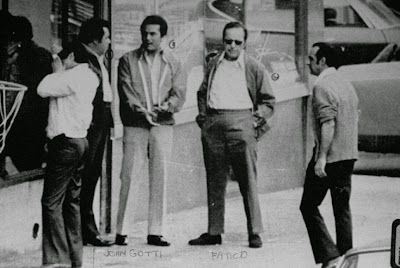
Gotti was arrested with Gravano, now Gambino family consigliere; Gambino family underboss Frank "Frankie Loc" Locascio; and Gambino family capo Thomas Gambino, son of Carlo Gambino, during a raid of the Ravenite at approximately 7 P.M. on December 11, 1990, the night before he'd planned to take his mistress, Lisa Gastineau, to Frank Sinatra's 75th birthday concert at the Meadowlands' Byrne Arena in East Rutherford, New Jersey. The concert was to be a gift to Gastineau, whose own birthday was on the 11th. Gambino-associate John "Jackie Nose" D'Amico would often arrange for the couple to meet surreptitiously before dining at Midtown Manhattan restaurants the Rainbow Room and Da Noi. At the time, Gastineau was married to estranged-husband, former New York Jets defensive lineman Mark Gastineau. The five-time Pro Bowler was reportedly dating actress Brigitte Nielsen at the time.
Gotti was charged with federal racketeering and the murders of Paul Castellano, Tommy Billotti, Robert DiBernardo, Louis Dibono and Liborio Milito. He was also charged with loansharking, tax evasion, bribery, illegal gambling, obstruction of justice and conspiracy to murder Gaetano "Corky" Vastola. During pre-trial hearings, prosecutors successfully argued for Gotti to be held without bail and denied the services of his regular counsel, Gerald Shargel and Bruce Cutler. In early November 1991, Gravano reached out to the government via telephone from the Metropolitan Correctional Center and agreed to meet with prosecutors. On November 8, FBI agents took Gravano to a motel in a NYC suburb, where he first met with federal prosecutors John Gleeson and Andrew J. Maloney, the U.S. Attorney for the Eastern District of New York; and defense attorney William J. Cunningham. Per his request, Gravano was played tapes which included Gotti calling him greedy and discussing murders that he committed. At the resulting trial, Gravano, the government's star witness, testified over nine days that, among other things, he participated in 19 murders and that he and Gotti were on hand to witness the murder of Paul Castellano and Tommy Bilotti. The prosecutions case was further bolstered by audio recordings captured by listening devices, including one made on December 12, 1989 in which Gotti was heard to say about Gambino capo Robert DiBernardo: "I was in jail when I whacked him. I knew why it was being done. I done it anyway." He continued, "I whacked him because he wouldn't come in. He didn't do nothin' else wrong." Fearing a repeat of previous trials, the government sequestered the jury. The high-profile trial was attended by several celebrities, including: Mickey Rourke; John Amos; and Anthony Quinn, who was conducting research for his subsequent portrayal of Aniello Dellacroce in the 1996 HBO movie Gotti.
Following a 10-week trial and after 13 hours of jury deliberations, Gotti was convicted on all counts on April 2, 1992. Locascio was convicted of racketeering, including one murder charge and six other charges consisting of murder conspiracy, tax fraud, gambling and obstruction of justice. Both were sentenced by Judge I. Leo Glasser to life in prison without the possibility of parole and $250,000 fines. An estimated 800 demonstrators chanted support for Gotti for over two hours outside Brooklyn federal courthouse. Seven protesters were arrested following a scuffle with police in which eight officers were injured. Gravano was sentenced to five years in prison.
On February 24 ,1992, the jury foreman in Gotti's 1987 RICO trial, George H. Pape, was indicted on charges of obstruction-of-justice for requesting and receiving, through a long-time associate of Gravano, a $60,000 bribe to ensure that a guilty verdict wasn't reached. A jury found Pape guilty on November 6. He subsequently served three years in prison.
On June 23, a jury sentenced Gotti to a life term in federal prison. Following his sentencing hearing, Gotti was transported via plane to the maximum-security federal prison in Marion, Illinois, becoming federal inmate# 182-053. Beginning in 1992, he was limited to his cell, with the exception of one hour of exercise each day. In order to retain his control over the Gambino family, Gotti installed a ruling panel, composed of his son, John "Junior" Gotti; capo John "Jackie Nose" D'Amico; and Nicholas "Little Nick" Corozzo.
On July 18, 1996, Gotti was assaulted in the prison recreation room by fellow-inmate Walter Johnson. Johnson, an African-American, punched Gotti in response to his use of a racial slur. Seeking retaliation, Gotti solicited Michael McElhiney and David Sahakian, high-ranking members of the Aryan Brotherhood prison gang to murder Johnson for either $40,000 or $400,000. The following month, McElhiney ordered two members of the gang to carry out the hit. By March of 1997, Johnson, a convicted bank robber, had been transferred to the ADX federal supermax facility in Florence, Colorado. AB member and former inmate Jesse Van Meter subsequently visited gang leader Barry Mills, also incarcerated at ADX, at McElhiney's behest in order to work out the details of the plot. Mills allegedly delegated responsibility for the killing to two gang subordinates after prison guard Joseph Principe arranged for the three to be in the exercise yard together. Johnson was released from prison on May 15, 2000, alive and well.
Gotti was diagnosed with throat cancer and underwent head and neck surgery to treat it in 1998.
"Junior" Gotti was convicted of racketeering himself, in 1999. He'd entered a guilty plea in exchange for a reduced sentence of six years and five months. That February, a prison recording captured John Junior asking Gotti for permission to plead guilty. By that time, every member of the "Gambino panel" was facing serious federal charges, so John Gotti named his eldest brother, Peter, the acting boss.
On June 4, 2002, federal prosecutors unsealed an indictment charging 17 people, including John's brothers Peter and Richard (Gambino family captain), with racketeering. Four of the defendants, including brothers Vincent and Julius Nasso, were charged with extorting money from action star Steven Seagal. Seagal was allegedly pressured to hand over $150,000 for every movie that he made. One of the men charged allegedly showed up on the Canadian set of Seagal's 2001 movie Exit Wounds and later attended the film's March 13, 2001 premiere in Holllywood.
John Gotti died of throat cancer on June 10, 2002, at the Springfield, Missouri federal prison hospital. He was interred next to his son, Frank, at St. Johns Cemetery in Queens. By the time Gotti died, the FBI had compiled over 1,580 pages of files related to him.
In early 1990, Gotti, the g*dfather of the Gambino crime family, met Marlon Brando, the star and title character of the 1972 mafia film, The G*dfather. Gotti, who was dining with friends in the back room of a restaurant in Little Italy had an associate, Rocco "The Butcher" Musacchia, invite Brando, who was in the restaurant dining with two of his co-stars, to meet him. After Gotti agreed, via Musacchia, to Brando's request that his dinner companions, Matthew Broderick and Bruno Kirby, who appeared with Brando in the then-upcoming mob comedy, The Freshman, released July 20, accompany him, the mobster and the three actors were introduced. Musacchia, a reputed lieutenant in the Genovese crime family, happened to be familiar with the trio through his work as a technical advisor on the movie.
On January 20, 1990, Gotti went to trial alongside Gambino family soldier Anthony "Tony Lee" Guerrieri in New York state court for charges connected to the shooting of a carpenters' union president. Each was charged with two counts of assault and a single count of conspiracy. The victim, John F. O'Connor, CEO of Manhattan's Local 608 of the United Brotherhood of Carpenters and Joiners, had been shot four times in the legs and buttocks, by members of the Irish-American organized crime group the Westies, on May 7, 1986. Gotti was accused of ordering O'Connor shot, using Guerrieri as a go-between, in response to his trashing of a Gambino-controlled restaurant constructed with non-union workers. Before his February 9 acquittal on all charges, and while Gotti was in court, the FBI broke into the Ravenite and planted listening devices in the apartment directly above the club. Also, Gotti's penchant for meeting with fellow mobsters in front of the Ravenite yielded an enormous amount of photographic and video intelligence to investigators, who kept the club under constant surveillance. The press began calling Gotti "The Teflon Don" following his acquittal -- a reference to the notion that the government could never seem to get their charges to stick to him. Upon realizing that Gotti routinely held meetings in the apartment above the club, unit# 10, belonging to Nettie Cirelli, widow of Gambino soldier Mike Cirelli, federal agents broke into the apartment while she was out of town for Thankskiving and installed more listening devices. Gotti was subsequently arrested that December and charged with 13 counts of gambling, tax fraud, obstruction of justice, racketeering, conspiracy and murder (five in all).

Gotti was arrested with Gravano, now Gambino family consigliere; Gambino family underboss Frank "Frankie Loc" Locascio; and Gambino family capo Thomas Gambino, son of Carlo Gambino, during a raid of the Ravenite at approximately 7 P.M. on December 11, 1990, the night before he'd planned to take his mistress, Lisa Gastineau, to Frank Sinatra's 75th birthday concert at the Meadowlands' Byrne Arena in East Rutherford, New Jersey. The concert was to be a gift to Gastineau, whose own birthday was on the 11th. Gambino-associate John "Jackie Nose" D'Amico would often arrange for the couple to meet surreptitiously before dining at Midtown Manhattan restaurants the Rainbow Room and Da Noi. At the time, Gastineau was married to estranged-husband, former New York Jets defensive lineman Mark Gastineau. The five-time Pro Bowler was reportedly dating actress Brigitte Nielsen at the time.
Gotti was charged with federal racketeering and the murders of Paul Castellano, Tommy Billotti, Robert DiBernardo, Louis Dibono and Liborio Milito. He was also charged with loansharking, tax evasion, bribery, illegal gambling, obstruction of justice and conspiracy to murder Gaetano "Corky" Vastola. During pre-trial hearings, prosecutors successfully argued for Gotti to be held without bail and denied the services of his regular counsel, Gerald Shargel and Bruce Cutler. In early November 1991, Gravano reached out to the government via telephone from the Metropolitan Correctional Center and agreed to meet with prosecutors. On November 8, FBI agents took Gravano to a motel in a NYC suburb, where he first met with federal prosecutors John Gleeson and Andrew J. Maloney, the U.S. Attorney for the Eastern District of New York; and defense attorney William J. Cunningham. Per his request, Gravano was played tapes which included Gotti calling him greedy and discussing murders that he committed. At the resulting trial, Gravano, the government's star witness, testified over nine days that, among other things, he participated in 19 murders and that he and Gotti were on hand to witness the murder of Paul Castellano and Tommy Bilotti. The prosecutions case was further bolstered by audio recordings captured by listening devices, including one made on December 12, 1989 in which Gotti was heard to say about Gambino capo Robert DiBernardo: "I was in jail when I whacked him. I knew why it was being done. I done it anyway." He continued, "I whacked him because he wouldn't come in. He didn't do nothin' else wrong." Fearing a repeat of previous trials, the government sequestered the jury. The high-profile trial was attended by several celebrities, including: Mickey Rourke; John Amos; and Anthony Quinn, who was conducting research for his subsequent portrayal of Aniello Dellacroce in the 1996 HBO movie Gotti.
Following a 10-week trial and after 13 hours of jury deliberations, Gotti was convicted on all counts on April 2, 1992. Locascio was convicted of racketeering, including one murder charge and six other charges consisting of murder conspiracy, tax fraud, gambling and obstruction of justice. Both were sentenced by Judge I. Leo Glasser to life in prison without the possibility of parole and $250,000 fines. An estimated 800 demonstrators chanted support for Gotti for over two hours outside Brooklyn federal courthouse. Seven protesters were arrested following a scuffle with police in which eight officers were injured. Gravano was sentenced to five years in prison.
On February 24 ,1992, the jury foreman in Gotti's 1987 RICO trial, George H. Pape, was indicted on charges of obstruction-of-justice for requesting and receiving, through a long-time associate of Gravano, a $60,000 bribe to ensure that a guilty verdict wasn't reached. A jury found Pape guilty on November 6. He subsequently served three years in prison.
On June 23, a jury sentenced Gotti to a life term in federal prison. Following his sentencing hearing, Gotti was transported via plane to the maximum-security federal prison in Marion, Illinois, becoming federal inmate# 182-053. Beginning in 1992, he was limited to his cell, with the exception of one hour of exercise each day. In order to retain his control over the Gambino family, Gotti installed a ruling panel, composed of his son, John "Junior" Gotti; capo John "Jackie Nose" D'Amico; and Nicholas "Little Nick" Corozzo.
On July 18, 1996, Gotti was assaulted in the prison recreation room by fellow-inmate Walter Johnson. Johnson, an African-American, punched Gotti in response to his use of a racial slur. Seeking retaliation, Gotti solicited Michael McElhiney and David Sahakian, high-ranking members of the Aryan Brotherhood prison gang to murder Johnson for either $40,000 or $400,000. The following month, McElhiney ordered two members of the gang to carry out the hit. By March of 1997, Johnson, a convicted bank robber, had been transferred to the ADX federal supermax facility in Florence, Colorado. AB member and former inmate Jesse Van Meter subsequently visited gang leader Barry Mills, also incarcerated at ADX, at McElhiney's behest in order to work out the details of the plot. Mills allegedly delegated responsibility for the killing to two gang subordinates after prison guard Joseph Principe arranged for the three to be in the exercise yard together. Johnson was released from prison on May 15, 2000, alive and well.
Gotti was diagnosed with throat cancer and underwent head and neck surgery to treat it in 1998.
"Junior" Gotti was convicted of racketeering himself, in 1999. He'd entered a guilty plea in exchange for a reduced sentence of six years and five months. That February, a prison recording captured John Junior asking Gotti for permission to plead guilty. By that time, every member of the "Gambino panel" was facing serious federal charges, so John Gotti named his eldest brother, Peter, the acting boss.
On June 4, 2002, federal prosecutors unsealed an indictment charging 17 people, including John's brothers Peter and Richard (Gambino family captain), with racketeering. Four of the defendants, including brothers Vincent and Julius Nasso, were charged with extorting money from action star Steven Seagal. Seagal was allegedly pressured to hand over $150,000 for every movie that he made. One of the men charged allegedly showed up on the Canadian set of Seagal's 2001 movie Exit Wounds and later attended the film's March 13, 2001 premiere in Holllywood.
John Gotti died of throat cancer on June 10, 2002, at the Springfield, Missouri federal prison hospital. He was interred next to his son, Frank, at St. Johns Cemetery in Queens. By the time Gotti died, the FBI had compiled over 1,580 pages of files related to him.

Salvatore "Sammy the Bull" Gravano and John Gotti





